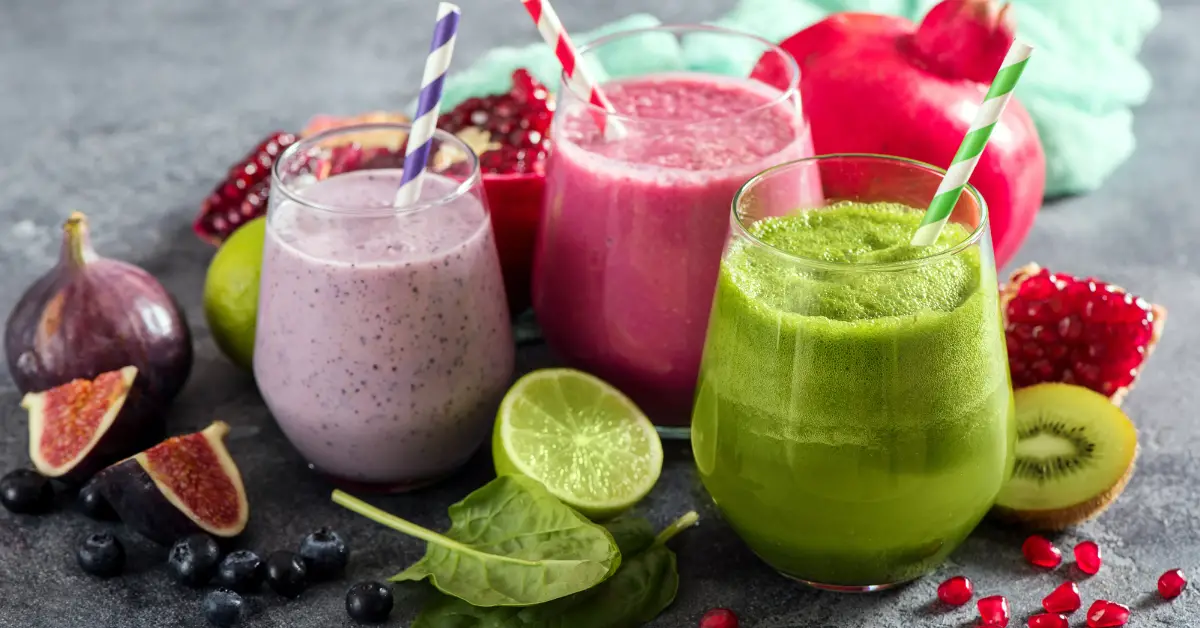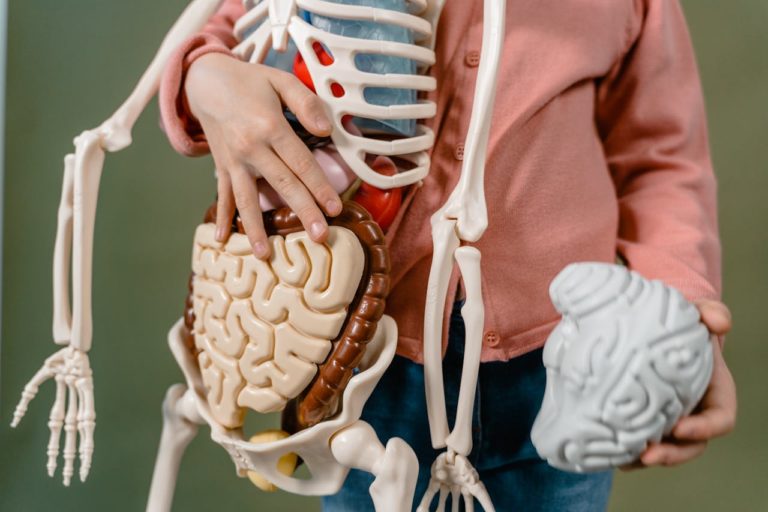Did you know that your gut health affects your whole body? Not only does it have an impact on how your organs function, but it also influences your emotions and behavior. That’s why one of the greatest gifts you can give yourself is to regulate your gut health.
Since it’s so important, you should only trust the experts when it comes to taking care of your gut.
A gastroenterologist specializes in understanding the digestive tract. They’re who you go to if you’ve been experiencing stomach problems. This might include heartburn, constipation, diarrhea, irritable bowel syndrome, or frequent and recurrent abdominal pain.
The Work of a Gastroenterologist
A gastroenterologist has completed the following:
- Three years of an internal medicine residency
- Board certification in internal medicine
- 36 months of fellowship training, with at least 18 months of clinical training
- Successful completion of the Gastroenterology Certification Exam. [1]
Many gastroenterologists find the work rewarding because it allows us to see a huge variety of medical presentations and patients. Some find the medium- to long-term management of so many different diseases fascinating.
When you visit a gastroenterologist, they will ask you about your symptoms and conduct a physical examination.
Typically, you will lie down on a table with the doctor pressing down on the outside of your belly. They’ll feel for anything out of the ordinary, ask if it hurts, and listen for unusual sounds. They will also ask you questions about your overall gut health and habits.
They may refer you for additional tests or diagnostic procedures such as a colonoscopy or upper endoscopy. Both procedures use small cameras that allow the doctor to view your digestive tract.
Following a diagnosis, the doctor will discuss your treatment options and advise you on how to improve your gut health. [1]
A great start if you have any stomach concerns is to take Dr. Nandi’s Gut Health Quiz to help you start and maintain the habits needed for a healthy gut.
Diet of a Gastroenterologist
If you ever visit a gastroenterologist, they can make a huge difference in your life, thanks to improved treatments and scientific advances. With modern medicine and procedures being their expertise, gastroenterologists know all the solutions for digestive woes.
Have you ever wondered what a gastroenterologist likes to eat at home?
Dr. Will Bulsiewicz, MD, MSCI, a Charleston-based gastroenterologist, underwent a major lifestyle change due to chronic health problems. He had spent 16 years of training to become a gastroenterologist, but he wanted a real solution beyond pills and procedures.
Dr. Bulsiewicz has talked about his “plant-predominate” diet that made a major impact on his health. Here’s what his usual diet is made of. [2]

Spiced Coffee
He starts his day with a cup of coffee. The polyphenols in coffee serve as prebiotics, feeding the good bacteria in the gut. Dr. Bulsiewicz also adds spices to his coffee, namely ginger, turmeric, and cinnamon.
Incorporating these spices into your diet may improve digestion, metabolism, nausea symptoms, and overall gut health, and the curcumin found in turmeric, can even help with the symptoms of IBS (irritable bowel syndrome). [3]
Research has also shown that compounds in cinnamon may lower inflammation in your digestive system, improving its efficiency. [4]
If you cannot take coffee for any reason, pure or ceremonial cacao is another source of polyphenols. 12%–18% of a whole cacao bean’s dry weight is polyphenols. [5]
Smoothies
Smoothies are a gut-friendly addition to breakfast because they are easy to drink and contain a variety of plants, as well as protein.
According to Dr. Bulsiewicz, they are a very effective way to nourish your gut microbes first thing in the morning.
Whole Grains
As an alternative to smoothies, Dr. Bulsiewicz recommends eating whole grains. His favorite is oatmeal with mixed berries, seeds, nut butter, coconut milk, and cinnamon on top.
You can also serve it with a side of kiwi. Studies show that eating two kiwis per day can improve bowel movements. [6]
Salads
Dr. Bulsiewicz serves himself salad for lunch as a simple way to consume a lot of fiber, magnesium, and other essential nutrients, keeping his digestive tract running as it should.
With a mix of greens, often with spinach and arugula, he then adds any available fresh vegetables and herbs. He also includes protein and one or two types of healthy fats such as walnuts and avocado.
Finally, Bulsiewicz uses extra-virgin olive oil and balsamic vinegar in his salad dressing. Polyphenols in extra virgin olive oil may help balance the bacteria in the digestive tract, slowing the growth of unwanted bacteria.
Plus, the main active compound in balsamic vinegar is acetic acid, which contains probiotic bacteria. These probiotics don’t just preserve food — they can also enable healthy digestion. [7]
Fermented Foods
He snacks on fermented foods throughout the day, with sourdough bread, kimchi, sauerkraut, and yogurt being his favorites. He also enjoys sipping on kombucha for digestive regularity.
Beans and Legumes
For dinner, Dr. Bulsiewicz loves a grain bowl. He’s especially fond of any dish that uses beans and whole grains as a base. They are, according to him, “the backbone of the healthiest diets in the world.”
Beans and grains make a good pairing, but you can also try adding roasted chickpeas to your salad for lunch or whole-grain, bean, or lentil-based pasta with a veggie bolognese for dinner. Another option is to make a grain salad for lunch and serve leftover grains with miso-glazed salmon and edamame for dinner
Lifestyle Changes for a Healthier Gut
Awareness of quality foods for gut health will help you make better decisions on what to eat without relying too much on prescription drugs.
Foods for encouraging bowel regularity are talked about often, and you should learn what is normal for you. What’s considered “regular” can differ based on age and individual circumstances. It is not uncommon for people to have anywhere from three bowel movements a day to three a week.
When a bowel movement happens, it should be complete or effortless — both important words for gastroenterologists to hear.
Getting enough nutrients, eating plenty of fiber, taking probiotics, reducing your stress levels, exercising more, and cutting down on overly processed foods, are all great ways to nourish your gut.
You can also take supplements focused on gut health, such as Digestive Enzymes and Fiber Complete from the Health Hero Pharmacy.
Take Dr. Nandi’s Gut Health Quiz so you can start to crush your health goals with focus, energy, and tons of willpower.

My Personal RX:
My Personal RX:
- Eat a Balanced Diet: Include whole, unprocessed foods rich in fiber, healthy fats, and nutrients.
- Consider Probiotics and Prebiotics: These support a healthy gut microbiome.
- Stay Hydrated: Water is essential for digestion and overall health.
- Take My Digestive Enzyme: Specially formulated to support digestion, reduce inflammation, and nurture your gut microbiome, aligning perfectly with the science of gut health. Always consult your healthcare provider first.
- Manage Stress: Chronic stress can negatively impact gut health. Practice relaxation techniques like meditation or deep breathing.
- Take your first step towards better health by downloading our free 50-page ‘Protocol for Optimizing your Health and Wellbeing.’ It’s a step-by-step guide designed to help you make significant changes in your life.
Transform your health starting with your gut. Nourish it with My Digestive Enzyme and set yourself on the path to a healthier, happier you!

Sources:
- What Is a Gastroenterologist?
- ‘I’m a Gastroenterologist, and These Are My Go-To Foods for Optimal Gut Health and Regularity’
- Curcumin, Quercetin, Catechins and Metabolic Diseases: The Role of Gut Microbiota
- Beneficial Effects of Cinnamon on the Metabolic Syndrome, Inflammation, and Pain, and Mechanisms Underlying These Effects – A Review – ScienceDirect
- The Cardiovascular Effects of Cocoa Polyphenols—An Overview – PMC
- Mechanisms underlying effects of kiwifruit on intestinal function shown by MRI in healthy volunteers – PMC
- Extra-virgin olive oil and the gut-brain axis: influence on gut microbiota, mucosal immunity, and cardiometabolic and cognitive health | Nutrition Reviews | Oxford Academic



















